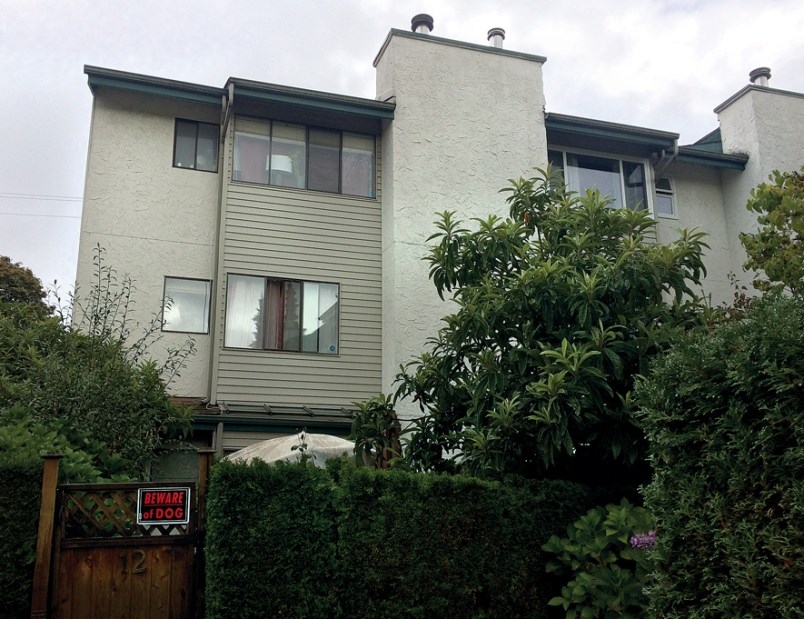NOTE: This story has been updated since it was first posted.
The North Vancouver townhouse once used as an illegal hostel will soon be hitting the market by order of a B.C. Supreme Court Judge.
Owner Emily Yu had welcomed more than a dozen people some nights, in her three-bedroom townhouse, which she advertised as the Oasis Hostel on various short-term rental sites. The strata council took Yu to the Civil Resolution Tribunal, which ordered her to stop. When she continued to bring guests in, she was found in contempt of court, which came with a $5,000 fine and an order to cover the $52,100 in legal bills the strata racked up trying to have their bylaws enforced.
Yu paid the fine in court in December 2019 but when she could not come up with the money for the legal costs, B.C. Supreme Court Justice Barry Davies agreed to the strata’s request to force the sale of the townhouse. Some remaining housekeeping matters were sidelined by COVID-19, stalling the process.
On June 25, in a court hearing held over the phone, Davies agreed to the strata’s request to appoint a court sheriff to sell the house.
Strata lawyer Stephen Hamilton said they must still advertise the forced sale and wait 30 days before a real estate agent may put the property on a multiple listing service.
“Once we find a buyer with a reasonable price, we will go back before Justice Davies, and he'll approve the sale. And that'll be that,” he in an interview. “Someone will buy it.”
Davies’ order also states that Yu must provide the townhouse keys to the sheriff and make the property available for showings between 9 a.m. and 7 p.m. seven days a week.
Other creditors who are owed money will also be paid out before Yu collects the remainder.
The province currently has two liens on the property totalling more than $95,000.
Yu, however, now says she does not owe the province any money, and irregularities in the court filing system have left her responsible for legal bills she does not actually owe.
“I am a victim of identity theft, property fraud, court document fraud,” she said in an email to the North Shore News, alleging that her name and address had been switched with someone else’s in the court file. “As a result of the cross error, I am becoming the scapegoat of someone else’s liabilities.”
Following the court’s decision, the strata released a statement.
“Our strata breathed a huge sigh of relief today to know that this long-running issue is hopefully, and finally, moving toward a resolution. It’s been a long and frustrating process for all of us but we have remained patient in believing the right outcome will be reached in the end,” it read.
It is relatively common for courts to order the sale of properties to enforce previous judgments or to settle unpaid debts, Hamilton said, but forced sales over the conduct of an owner are exceedingly rare.
This story has been updated to include a response from Yu.



